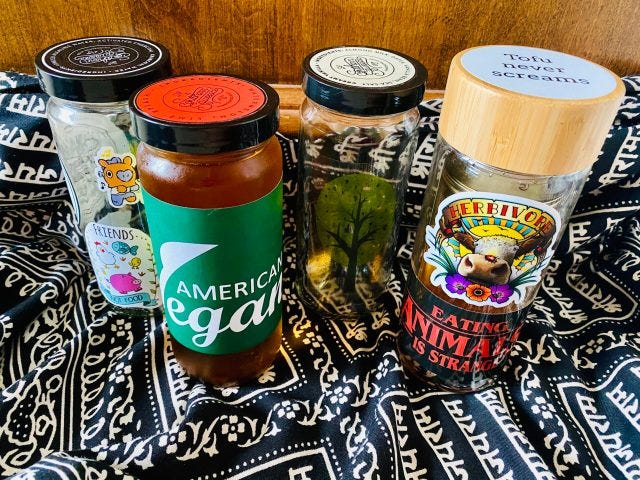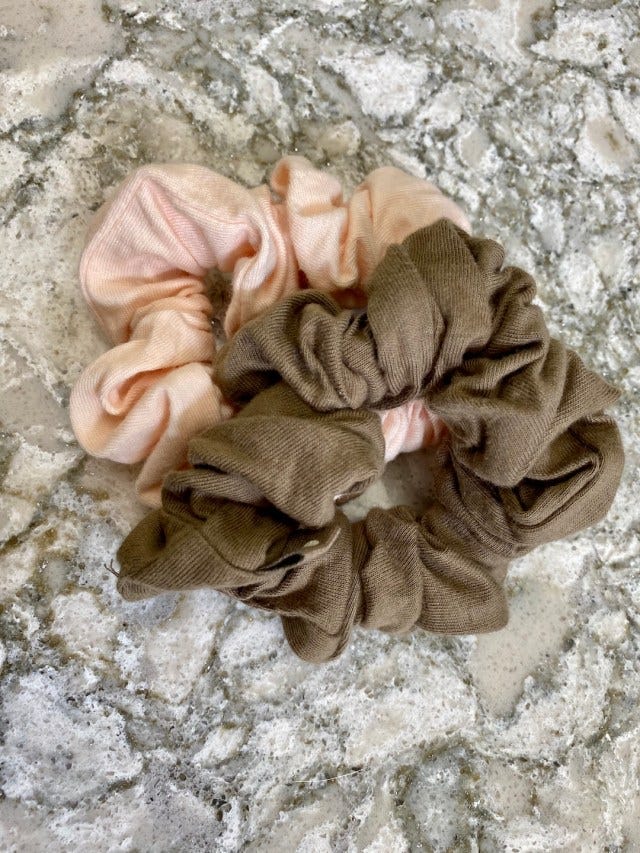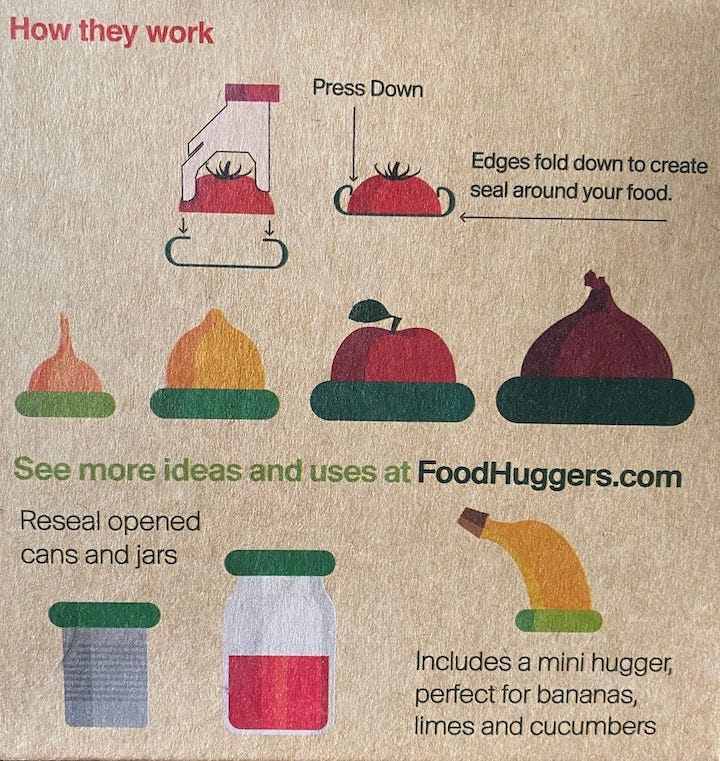The Best & Worst of Zero-Waste, Pt. 2
"I am no longer accepting the things I cannot change. I am changing the things I cannot accept."
-Dr. Angela Davis
Amendments
Metal straws. Recently, I've been really into smoothies, so I've been using my metal straws much more often. However, I still agree with what I mentioned in Part 1 that you shouldn't buy a straw unless you definitively know you'll use it regularly. Otherwise, you'll have wasted your money on something collecting dust in a drawer somewhere.
Deodorant jars. In Part 1, I put jarred deodorant in the "Worst" category because I found a deodorant in a compostable tube. However, I've found that I used up that tube faster than a jar, and since they're about the same price, I've decided to use a combination of the two for now. But if I'd have to recommend one or the other, I'd say that a jar is more bang for your buck.
Lotion bars. Finally, after several years and plastic bottles, I'm almost out of my perfumey Bath & Body Works lotion. So, instead of an aluminum bottle of liquid lotion, I've decided to try out this moisturizing bar instead. Similar to jarred deodorant, you use your own body heat to warm up the lotion and rub it into your skin. I'm hoping this will be a good swap and won't leave my skin feeling greasy and heavy.
Selling stuff. I'm not sure what's come over me recently, but I feel like I've had a zero-waste breakthrough. I had been feeling so stressed over the amount of stuff I have that I don't need. Even when I can't see it, I feel anxiety just knowing that it exists and that wherever I go, I have to drag it around with me. So, I finally started selling some of it, starting with old books and DVDs that I don't need anymore. Going through this process of listing, packing, and shipping each individual product made me realize how much I take for granted the simplicity of clicking a few buttons on a webpage to order a product. It made me want to never buy a physical copy of anything ever again because I don't want to have to inevitably get rid of it in a few years.
The Best of Times
Buy less stuff. A lot of specialized zero-waste products can be a bit pricey. However, if you save your money simply by shopping less and not buying things you don't really need, you'll be able to afford those zero-waste products that will, in the long run, help you save even more time, money, and resources!
Glass drinking jars. You don't need to spend a ton of money investing in a fancy set of drinking glasses. Plus, I love the eclectic look of a cupboard full of mixed glasses. These three glasses (in the photo below) came from Southern Squeeze, a plant-based cafe in Chattanooga, TN; they make and sell their juices and milks in these jars, and I get three souvenirs which double as incredibly useful cups I can use for years. If you don't have anything like that near you, you can try thrifting mugs and mason jars. It will certainly liven up your tableware.

Tea infuser bottle. While on a trip to Peru, I developed a taste for tea, as we often drank coca leaf tea to aid in the prevention of altitude sickness. But as I became more aware of environmental issues and the zero-waste lifestyle, I sought out loose-leaf teas instead of bags. And, as you can likely guess from the previous point, I prefer drinking from jars with lids (or reusable water bottles) instead of cups and mugs. Tea infuser bottles allow you to place loose-leaf tea in a small compartment in the bottle and take it on the go. Of course, if you prefer a mug, you can use a metal tea steeper, another great tool to prevent the use of landfill-destined teabags.
Laundry alternatives. Those giant plastic tubs of laundry detergent are seriously the worst. And don't be fooled by the cartons with paper on the outside. As I mentioned in Part 1, some brands put paper/bamboo packaging on the exterior to make their products look more sustainable, but there's still plastic lining on the inside. Instead of traditional liquid laundry detergent, opt for Nellie's Laundry Soda (though the powder does come in a plastic bag with a small plastic scoop), Soap Nuts, Tru Earth laundry sheets, or Dropps laundry pods.
Stain stick. This might not be an essential, but a stain stick is definitely helpful for quick fixes and getting tough stains out in the wash.
Laundry bags. These are super handy for washing delicate or small items in the laundry: hankies, cotton/bamboo rounds, hair ties, and face masks. Though it isn't necessarily an essential, I've found that it makes zero-waste much easier when I'm not always sorting through my laundry for all these tiny pieces of fabric. Additionally, because I wash all my laundry (besides bedding) together, it protects more fragile items from getting damaged by bulkier ones in the washing machine.
Cotton hair ties. Though I still have more generic, plastic-laden hair ties than I'd like, they are slowly but surely loosening up and breaking. I have invested in these KOOSHOO scrunchies -- just to mix-up my hair game a bit -- and so far, I'm impressed. I still worry about them wearing out, stretching, and breaking like generic hair ties, and I don't want to be in the same situation of having to buy hair ties every few years (especially considering how expensive the more environmentally-friendly option is). I've considered other products, such as ribbons, to avoid this reliance on a particular product, but I don't know how well they'd work either. It's unfortunate that these are just one of those products, unless I cut all my hair off, that is pretty essential -- as simple as it is.
Who Gives a Crap. If you haven't made the switch to a bidet yet and maybe aren't quite ready to take the plunge, buying more sustainable toilet paper is a good first step. Who Gives a Crap makes both recycled toilet paper and bamboo toilet paper, as well as paper towels and tissues (if you haven't yet switched to hankies). The rolls are packaged in paper and shipped plastic-free, so you never have to deal with that awful thin, clingy plastic on standard toilet paper again. Additionally, this brand donates 50 percent of its profits to help build toilets in developing nations; it's interesting how much we, in the first world, take for granted something as essential as the humble toilet.
Safety razor. Along with plastic detergent tubs, disposable razors are one of the worst products used in virtually every household. Not only do most of them contain lanolin, a derivative of wool, but they are so much more expensive and wasteful than a simple safety razor. The one I have cost me only $25 and will last basically forever (in a good way -- not in a plastic way), and each replacement blade costs about seven cents.
Vegan floss. This is a product that isn't technically zero-waste because floss is made of nylon and has to go into the garbage. However, these flosses are coated with plant-based wax instead of beeswax and come packaged in a paper box instead of plastic. Some brands making vegan floss are Eco-Dent, The Humble Co, and Radius.
Food covers. Finding ways to cover food without plastic or foil is not something that I thought about until I was in immediate need of it. Generally, the go-to for food wraps and covers in the zero-waste movement are wax wraps, but I'll be talking about those a little later. (Hint: they aren't in the "Best" section for a reason.) Instead, I'd suggest investing in silicone or cloth food covers, like the ones made by Food Huggers, Non-Disposable Life, or even by creators on Etsy (I've seen some really cute designs on there -- people are so creative!).
Silicone baking mats. This is seriously one of the best swaps to make. Not only does switching to silicone mean you no longer need to keep throwing out parchment paper and aluminum foil, but it also makes baking food way easier (and healthier)! You don't even need oil to cook with these because the silicone mostly prevents food from sticking to the sheet.
Popcorn alternatives. I love popcorn, but I've been looking for ways to make it without having to buy it in microwavable bags. Of course, you can buy kernels and pop them on the stove (which, in my opinion, tastes far superior to whatever you can get in a bag), but there are even easier ways to have a low-waste snack. You can invest in an air popper, a kitchen appliance that requires no oil to pop your popcorn, or a microwave popcorn maker (which is what I have), that you just fill up with popcorn and stick in the microwave for a few minutes.
Buy refurbished tech. It absolutely boggles my mind how many people buy a new iPhone every time one comes out just for the sake of getting the latest tech. But technology uses tremendous amounts of resources (no matter how much Apple claims to be sustainable), and things don't change as much from version to version as the marketing would make you believe. So instead, try buying refurbished/used tech products when possible.
Buy pre-owned when possible. The terrible thing about this world is that people buy way too much crap. The silver lining is that you don't have to! Whether it's books or clothes or cars or furniture (no, this doesn't mean you have to pick up a dingy sofa left out on someone's curb), there is always someone wanting to get rid of "old" stuff in favor of something newer. Instead of increasing the demand for new products, test the waters by buying some things pre-owned.
Delete space wasters. This can apply to both tangible and intangible things. In the physical world, I'm getting rid of books, tchotchkes, clothes I don't wear, and anything else taking up space that I don't need. On my computer and phone, I try to delete old webpages I bookmarked (some from years ago), apps I don't use, and old photos and videos I haven't looked at in years. And, in all seriousness, it relieves a great deal of stress to not have the presence of these unnecessary items clogging up my life; it makes me cherish what I already have that much more.
The Worst of Times
Dryer balls & sheets. It should be clear by now that wool dryer balls are absolutely not environmentally-friendly from what I discussed in "Proof That Wool is an Environmental Hazard." They've achieved a status in the zero-waste community as a sustainable alternative to dryer sheets, but, really, you don't need either to dry your clothes and both are bad for the planet in different ways. With dryer balls, you have the unseen emissions of methane and CO2 of millions of sheep, while with dryer sheets, you have single-use, landfill-destined cloth- or paper-like materials. I dry my clothes perfectly fine without using either, and I save money that way, too!
Wax wraps. Most wax wraps are made with beeswax and, like wool dryer balls, are viewed as a good alternative to plastic wrap or aluminum foil. However, with the mutilations performed on bees in the industry and the oversaturation of farmed bees into natural ecosystems, I'd argue that neither option is good. (That's why we have silicone Food Huggers or cloth food covers instead.) Though there are a few brands making plant-based wax wraps, I have to say that I think it'd be a waste of money to invest in these (especially considering how pricey they are). The process of getting the wax to stick to something is simple enough -- hold your hand on it and let your body heat mold the wax to the item -- but it never actually works. Almost as soon as I get the wax sealed onto a bowl, it starts coming off. Plus, the wax makes your hands sticky, which wouldn't be a deal-breaker if the darn things actually worked! I'd say just skip out on these altogether and look for a better alternative.
Sunscreen. Don't worry, I'm not anti-sunscreen! In fact, in the summers here in Florida, I'm wearing sunscreen almost every day. But I have been unable to find a zero-waste, vegan, cruelty-free sunscreen that doesn't make me look as pale as a ghost and leave an oily residue. Unfortunately, this is one of those things that I'll have to either suffer with the greasy, white paste or go back to buying in plastic.
Boxed Water. Boxed Water is a brand selling water in boxes instead of plastic bottles; they look cool and trendy, I'll give them that, but this is an entirely unnecessary product. Though their cartons are recyclable, only 74% of the box is paper -- what's the other 26%? (And how many people will actually recycle it? And out of those, how much will actually be recycled and not be tossed in a landfill like the majority of recycling?) But instead of buying these cartons over and over, just buy a reusable bottle instead. You'd save way more money and resources overall. I appreciate the innovation, and I hope that some people have started using these in place of plastic bottles, but if we really want a sustainable option, this isn't it.
Homemade makeup. As I said in Part 1, the skin on your face is very sensitive, and it's best to rely on professionals for skincare. The same goes for beauty products. Though makeup is one of the industries farther behind in the sustainability movement, it's better to support brands doing their best -- even if they use some plastic -- and use minimal products.
Silk floss. Like dryer balls and beeswax wraps, here's another "sustainable" product made through animal exploitation. This is the one, however, that I understand the most because the only available alternative requires the use of plastic. First, the majority of silk production requires the slaughter of the silkworms while in the cocoon to preserve the silk's integrity (and though I don't know as much about "nonviolent" silk, I am dubious of any animal exploitation industry that claims to not kill the animals because, as we've learned before, they always kill the animals at one point or another). Ironically, the silk floss brands I've seen all use plant-based waxes as opposed to the beeswax used on most flosses (because I guess exploiting two species of insects just crosses some sort of ethical line). Additionally, the silk industry often employs child labor in Asian countries where silk is mass-produced. Lastly, the silk is processed with chemicals to sterilize it for human use -- probably not so great for the environment or your health. Either way, silkworms and their cocoons don't belong to humans; we should be looking for better, animal-friendly alternatives instead.
be conscious, be kind, be vegan
Related posts you may enjoy:
"Proof That Wool is an Environmental Hazard"
"The Best & Worst of Zero-Waste"
"Easy Ways to Reduce Your Waste, Pt. 2"





